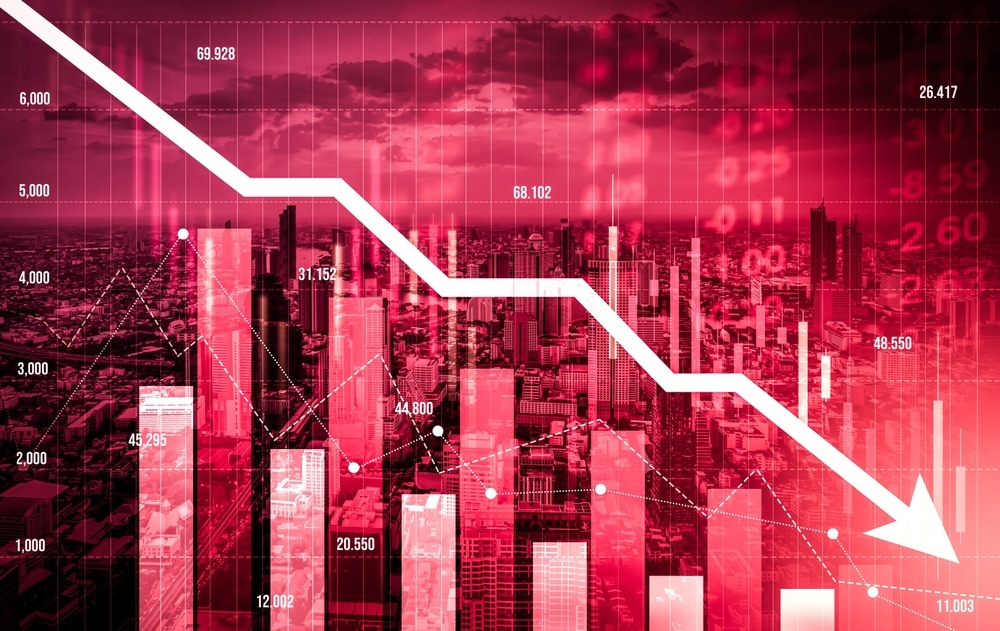Analysts attribute the interplay of factors in Japan and the US to creating the storm that plunged the crypto and stock market into chaos globally.
Analysts across the financial markets acknowledged the cascading losses witnessed across the globe, with the majority describing the Monday downturn as the perfect storm. The market observers principally single out the initiatives undertaken in Japan and the US to yield the troubling scenario that triggered recession fears. Such has prompted sell-offs witnessed in crypto and traditional markets.
UK-based financial services provider AJ Bell attributes the decline to a pair of factors. The firm decries the swift decline in the US labor markets following a period of better-than-expected performance. Secondly, AJ Bell points to the higher interest rates by the Bank of Japan (BOJ) adopted to shield the Yen from further slump and abuse by market makers as an easy-to-go source of liquidity.
AJ Bell’s investment head, Russ Mould, stressed several signals of a slowing US economy. In Monday’s note, Mould cites rising unemployment, housing market struggles, and weaker performance in the manufacturing sector.
US Slowdown
The Friday update by the US government shows the country’s unemployment rate rose to 4.3% in the previous month. The report shows only 114,000 jobs were added, thereby the weakest ever since December 2020.
Higher supply and declining investment are paralyzing the housing market. Soaring prices are worsening the situation, already struggling with less demand. Additionally, the economic activity within the manufacturing contracted last month for the fourth consecutive month.
The troubling indicators caught the traders and institutional holders by surprise. Mould noted that the markets are yet to price in the US slowdown. Previously, the markets only showed concerns about potential overheating.
The analyst observes that though the present signs hardly indicate the ultimate plunge into the recession, the outcome is likely even if it undertakes swift action.
Mould recalls the frantic rate cuts by the Fed in 2000-02 and the financial crisis of 2007-08 to counter the bear market. The rate cuts failed to salvage the situation, with corporate earnings declining faster than the cost of money.
Yen Carry Trade
The meltdown witnessed on Monday seems exacerbated by the developments witnessed in the previous week, where Japan’s central bank announced an interest raise. The rate hike is the second since 2007 in an effort to bolster the Yen and shield it from aggressive borrowing by the market makers.
The objective to eliminate the carry trades appears to work, with the Yen surging on Monday to levels unseen since the onset of 2024. The same progress is sending ripples across the markets globally, with investors unable to maintain positions in carry trades. Such involves borrowing Yen to acquire higher-yield currencies such as the US dollar.
deVere financial advisor chief executive Nigel Green considers that a stronger Yen raises the cost incurred to maintain the trades. Such leaves rapid sell-off in the equities inevitable as the holders scramble to settle the yen-denominated debts.
Green considers the rapid sell-offs to be capable of causing cascading liquidations, unlike those previously witnessed in the crypto market. Such is exacerbating the slump following traders’ haste to exit positions into Yen. The Yen is appreciating against the dollar, leaving the traders undertaking carry trade strategies in worse positions. The move increases sales of risk assets, including US equities and crypto, to settle the yen-denominated debts.
Cube.Exchange chief Bartosz Lipinski rules out pandemic links to the global shutdown as the primary catalyst behind the sell-off. The executive considers the BOJ poured cold water on the carry trade investors.
Previously, the traders could borrow Yen virtually, incurring no cost, though they leveraged it to express opinions within a broader market across various assets. Lipinski observed that the Yen is now more costly and unattractive, forcing traders to liquidate to pay off the loans.
The BOJ rate hike saw the Asian stock plummet in a financial maelstrom that took down the US stocks on Monday. The shift illustrates the vulnerability of US markets to changes in global financial dynamics. Green considers the decline in US stock prices to be a reflection of the increased interconnectedness within global economies.
Green considers that the interlink extends to the crypto market – though considered autonomous from traditional finance – also plunged on Monday. Notably, Bitcoin slid below $50,000, with Ethereum crashing 24% and over $1 billion in liquidations witnessed in 24 hours per CoinGecko data.


